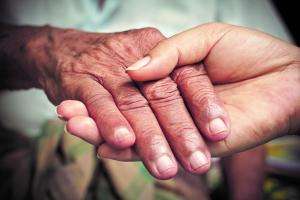VIEWPOINT: Less burdensome, but will DoLS replacement provide enough protection for our daughter?

My wife and I are retired qualified social workers with 70-plus years combined experience in a wide range of social work settings. We are also the parents of a 33-year-old daughter with a severe autistic spectrum disorder, the result of a brain tumour suffered when just a few months old.
Our daughter, along with four other similarly aged and similarly disabled people, has a tenancy in a shared house based along supported living lines. In May’s edition of Professional Social Work we learned the local authority responsible for our daughter’s care was hoping to save £3.1 million by re-assessing care packages provided to people with severe learning disabilities.
Shortly after reading this article we, along with parents of the four other tenants, were invited to a meeting with the local authority. We were asked if it was in the ‘best interest’ of the residents to have web-based movement sensors installed throughout the house.
The local authority never made a serious attempt to explain why they thought these sensors might be helpful. All the parents are very supportive of staff based at the house, and none of us could see any real advantage to our sons and daughters in having these sensors installed. In the light of the council’s savings plans, we sensed something else was going on.
Phone calls to the local Deprivation of Liberty Safeguards (DoLS) team and an Independent Mental Capacity Advocate supported our view that the degree of real-time monitoring implied by these sensors should be regarded as a deprivation of the tenants’ liberty.
A call to the Court of Protection further underlined this. The Court of Protection, however, could not become involved unless the local authority sought authorisation for the sensors, something they declined to do.
Through the summer we gained support for our cause from county councillors and the local National Autistic Society, and after some rancour the local authority eventually withdrew the plan.
As a group of parents, we are not opposed to the use of assistive technology in care where it can be shown to be in an individual’s best interest. But in light of the authority’s planned cuts, our suspicion was that the local authority had been hoping to use the sensors to combine staff groups at three supported living houses in the same geographic area, and in so doing cut the support provided to all.
For us, this was nothing more than a thinly-disguised attack on our daughter’s standard of living, and on the working conditions of all those that work so hard to support her and keep her safe.
We believe it was only us raising the deprivation of liberty issue that led to the rethink, (although the local authority refuses to acknowledge this), giving rise to the fear they may yet try again.
The replacement of DoLS with the proposed Liberty Protection Safeguards (LPS) currently going through Parliament increases our concern for the future of our daughter.
Under LPS, responsibility for authorising restrictions on liberty will shift to mainstream assessment and care planning. In our daughter’s case it was the local authority’s assessment team that wanted the sensors installed, so there does not seem to be much protection there for us.
There is also the suggestion that greater responsibility will go to care home managers. In supported living, does this mean the care staff at the house or their agency? The agency may be both remote from the needs of the tenants and vulnerable to pressure from their local authority contractor concerned mainly about its bottom line.
Ministers suggest that LPS will be a simpler and less burdensome system than DoLS. But our question is, will it safeguard the rights and liberty of our daughter?
